Iran Indicts Father Of Slain Protester Over 'Security' Charges
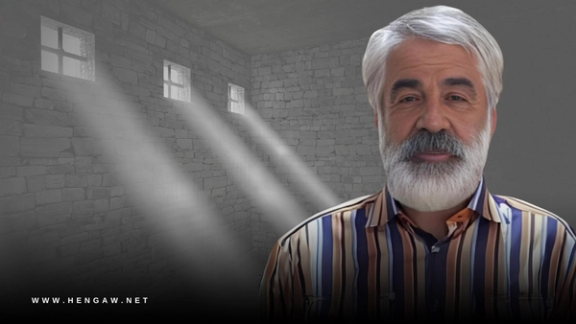
Mashallah Karami, the father of slain protester Mohammad Mehdi Karami, has been indicted for alleged crimes against national security, along with eight other political prisoners.

Mashallah Karami, the father of slain protester Mohammad Mehdi Karami, has been indicted for alleged crimes against national security, along with eight other political prisoners.
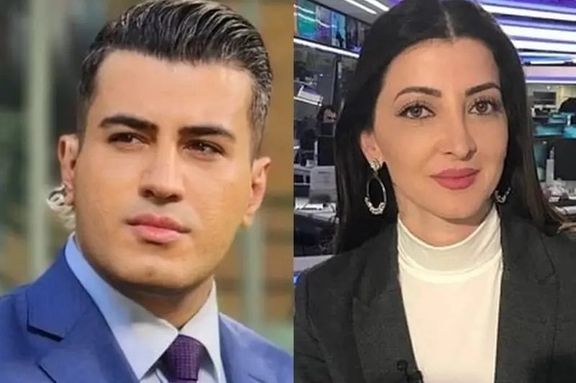
The IRGC was plotting to assassinate two Iran International television anchors in London in 2022 amid Iranian anti-government protests, UK’s ITV has revealed.
The plan was foiled because the man hired to do the job turned out to be a ‘double-agent’ working for a western intelligence agency. He would relay all information to his handler and has now shared some details with ITV.
Based on irrefutable evidence –seen and verified by ITV and multiple officials– the plot was commissioned and signed off by Mohammad Reza Ansari, the IRGC commander in charge of assassinations outside Iran.
Ansari is the ‘mastermind’ behind failed plots to assassinate former US officials Mike Pompeo and John Bolton –for which he’s been sanctioned by the US treasury. He is based in Syria and is reported to have links with the family of the Syrian dictator Bashar al-Assad.
According to ITV, Ansari hired and directed the hitman (Ismail) through another Assad associate, Mohammad Abd al-Razek Kanafani, requiring him first to use a car bomb and then a ‘quiet’ way to kill his targets: “simply stab [them] with a kitchen knife.”
The plot was cynically codenamed the “wedding”. The targets, Sima Sabet and Fardad Farahzad, were “bride” and “groom”. They did not know about the details of the plot until told by ITV during the making of the report.
Ismail, a people-smuggler turned IRGC operative and then double-agent, was promised $200,000, a new identity and safe passage to Iran via Syria.
This seems to have become the IRGC’s preferred method recently, using criminals rather than sympathizers or members of affiliated, non-Iranian militant groups, as was the case years back.
In November 2022, Volant Media, the parent company of Iran International, said that two of its journalists had been notified of direct threats. It said in a statement the Metropolitan Police had formally notified both journalists that these threats represented an imminent, credible and significant risk to their lives and those of their families. Following the significant escalation in Iranian state-backed threats and advice from the London Metropolitan Police, Iran International TV announced in February that it reluctantly and temporarily closed its London studios and moved broadcasting to Washington DC. After months of hiatus in broadcasting from the UK, the network relaunched operations from a new London building in September.
Since its inception, the Islamic Republic of Iran, has been engaged in such plots against Iranian opposition in exile. Some attempts have been more successful than the others, but the regime has never ceased threatening and targeting those who dare speak against it, even those ostensibly safe in western Europe or the United States.
Many Iranian activists believe that the failure of the host states to exact a high price for such atrocities have contributed to its continuation. Those arrested, even found guilty, have often been handed back to Iran in ‘exchanges’ –that, in turn, have been made possible through hostage-taking.
The most recent example is the release of Asadollah Assadi, a former attaché at the Iranian embassy in Austria, who was convicted in Belgium for plotting to bomb a gathering of Iranian opposition in France in 2018. He went back to Iran triumphantly in a deal to bring back Belgian aid worker Olivier Vandecasteele who was taken hostage in Iran in 2022 and sentenced to 40 years in prison.
According to ITV, the hitman (Ismail) was told the two presenters had to be targeted because they were causing the Iranian regime “a lot of humiliation in the media.”
“They accuse Iran of committing any kidnap or assassination [on television] and we must finish them and make an example of them… so anyone who will take their place in the channel will learn a lesson from what happened to them,” Iranian spies told Isamil.
The Iranian regime has been attacking Iran International ever since its launch in May 2017. It’s been called a “terrorist organization” and is deemed a “public enemy.”
In September 2023, Iran’s Intelligence Minister appeared on state television to reiterate that the regime would not refrain from “invasive security measures” against Iran International to show that “no terrorist media will be safe.”
“We believe that Iran International is a terrorist network, and naturally we deem it our duty and mission to act against them wherever and whenever we deem appropriate,” he said.
The ITV report Wednesday was broadcast only a few hours after the jury of a UK court returned a guilty verdict for a suspect gathering information on Iran International's London headquarters for a possible terror attack.
Chechnya-born Magomed-Husejn Dovtaev was detained by officers from London’s Metropolitan Police Counter-Terrorism Command in February 2023. He was charged with attempting to collect information "likely to be useful to a person committing or preparing an act of terrorism."
The final verdict will be issued by the court on Friday.
“This trial was a reminder of the threats journalists and news organizations face,” Iran International said in a statement after the verdict was announced. “We will not be cowed by threats. Our journalists will continue to provide the independent, uncensored news the people of Iran deserve,”
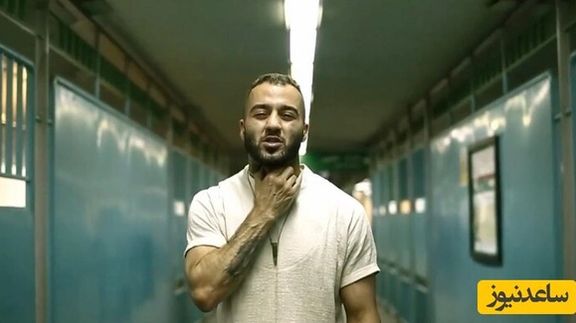
Ye-One Rhie, a German MP and a political supporter of Iranian rapper Toomaj Salehi, has issued a call for his immediate release.
In an exclusive interview with Iran International, Rhie expressed profound concern for Salehi's well-being, highlighting the lack of information about his current whereabouts.
Salehi, 33, was re-apprehended by plainclothes individuals on a street in Babol, northern Iran in late November. His arrest reportedly involved severe physical abuse, including beatings with the butts of rifles and pistols, as documented on his social media page.
Rhie expressed fears the star was badly beaten. "It's been going on for a couple of weeks now, and we don't know anything about him being transferred to a regular section, even before this new arrest when he was released on bail briefly."
Before the latest arrest, Salehi had spent over a year in prison, including 252 days in solitary confinement, before being released on bail on November 18th. His recent re-arrest sparked a social media campaign with over 75,000 mentions of Toomaj Salehi across various platforms.
Rhie, expressing frustration with the lack of information, urged diplomatic intervention. "What I'm demanding once again is that I get access to him, that we get to talk to him, to have a video chat at least so we can make sure that he is OK," she said. Rhie emphasized the need for proof of Salehi's well-being and called for access to a lawyer.
Responding to the question of Salehi's brief release on bail, Rhie said, "Nobody knows why the Iranian regime is doing what they are doing. Maybe they thought that they scared him off so much that he would go out and be quiet."
Salehi gained prominence for his protest songs addressing social issues and government injustices in Iran. In October 2022, Salehi's initial arrest was a component of a wider campaign targeting political adversaries of the regime.
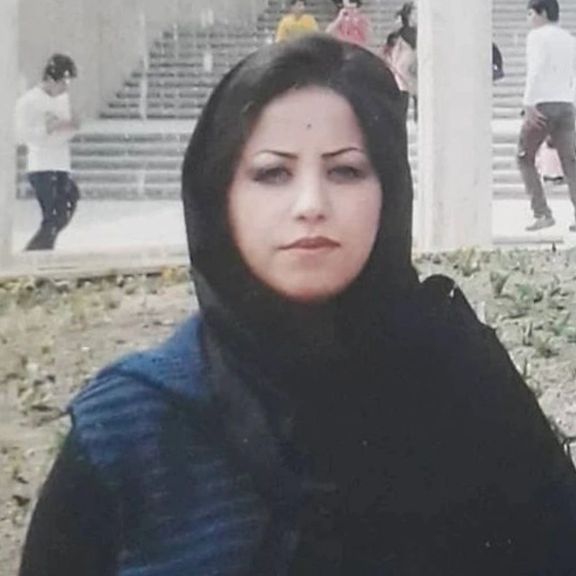
Iranian authorities have executed Samira Sabzian-Fard, a victim of child marriage who was convicted of murdering her husband.
Sabzian-Fard, married at the age of 15, faced the implementation of her death sentence for killing her husband four years after their marriage in 2013, according to the Norway-based Iran Human Rights (IHR).
Mahmood Amiry-Moghaddam, the Director of IHR, branded her execution as a “stark reflection of an inefficient and corrupt government resorting to violence and intimidation to sustain itself.” The IHR has called on the international community to hold Supreme Leader Ali Khamenei and other officials of the Islamic Republic accountable for such actions.
Sabzian-Fard's story is emblematic of women in Iran who, at a young age, are forced into marriage and subsequently become victims of marital issues. The latest report from the Iranian Statistical Center reveals a distressing statistic: at least 27,448 girls under the age of 15 in Iran married in 2022 alone.
Simultaneously, there has been an intensification of policies encouraging marriage in the country, as emphasized by the Supreme Leader Ali Khamenei. In recent years, targeted efforts have been made to reduce the age of marriage for girls and encourage families to facilitate the marriage of their daughters. One in five marriages involves minors, girls allowed to marry as young as 13.
The regime's efforts have been championed by some members of the parliament, government officials, and various cultural and educational institutions.
Iran is the world's leading executor of women, with a minimum of 16 reported executions in 2022 and a total of at least 17 women executed in the country so far this year. This grim reality is exacerbated by Iranian laws that prevent women from seeking divorce, even in cases of domestic violence.
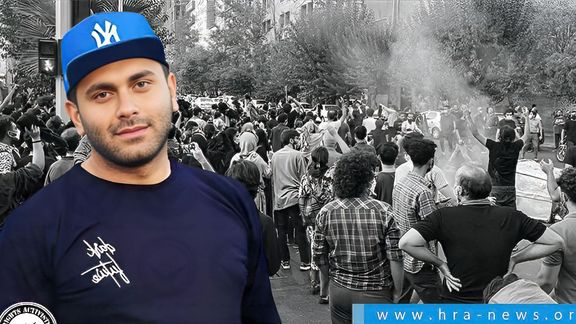
In a rare instance, two police officers and two plainclothesmen in Iran have been detained in connection with the attempted murder of protester Pouria Alipour.
During the initial weeks of the Iranian people's uprising last year, a video surfaced showing one officer driving over Alipour with a motorcycle, while another fired at him from a distance of less than a meter in a suburb of Tehran.
It is a rare case to come to trial in the wake of protests in which over 500 civilians were killed and tens of thousands more rounded up and imprisoned by state security apparatus in the uprising following the death in morality police custody of Mahsa Amini, arrested for the inappropriate use of her hijab.
In an interview with Emtedad News, Alipour's lawyer, Payam Dorafshan, said, "The new allegations include intentional manslaughter, unauthorized shooting, intentional assault, and creating a hostile view towards armed forces, as determined by the military investigator."
The release of the video of Alipour's attempted murder in November 2022 stirred public outrage in Iran. Some social media users described the footage as the "Islamic Republic unfiltered," while others interpreted it as "street-level assassination of dissenters."
Since the beginning of the Women, Life, Freedom uprising, numerous reports of protesters being beaten and mistreated by the security forces of the Islamic Republic have surfaced including mass blinding and state-sanctioned sexual violence, according to Iran's Me Too movement reports.
In addition to the hundreds of citizens killed and thousands detained during the uprising, the families of the plaintiffs have also faced severe pressure from the Iranian government over the past year.
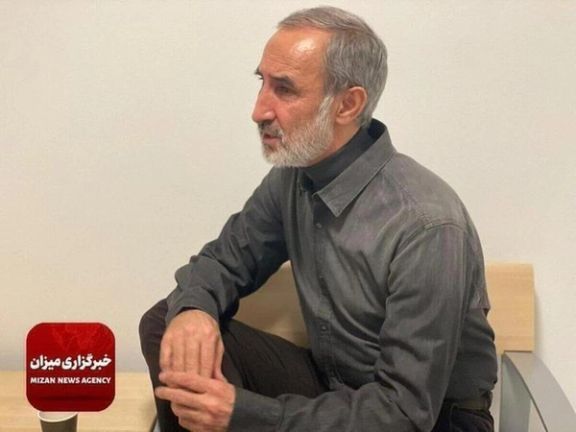
Following appeal, the Stockholm Court of Appeals announced it would uphold the life sentence of former jailor Hamid Nouri, for his role in Iran's 1988 massacres.
In addition to the life sentence, Nouri was also ordered to pay compensation to the families of the victims and political prisoners and faces expulsion from Sweden upon completing his prison term.
It is the first time that an official of the Iranian regime has been prosecuted for his role in the 1988 massacre.Nouri was a former deputy prosecutor at Gohardasht Prison in Karaj near Tehran at the time of the purge of political prisoners which saw around 30,000 people brutally murdered by the regime, around 90% of whom were members of the opposition People's Mojahedin Organization of Iran (MEK), party.
On July 14, 2022, Nouri was initially sentenced to life imprisonment for "war crimes" and "murder" by the Stockholm Regional Court, equivalent to 25 years in Swedish legal terms for which his legal team submitted an appeal.
Arrested on November 6, 2019, at Arlanda Airport in Stockholm, Nouri had dismissed all allegations related to the 1988 executions, labeling the events and charges against him as a "fictional, imaginary, and fabricated story."
The "Death Commissions" in 1988 followed the issuance of a fatwa by Ayatollah Ruhollah Khomeini, ordering the execution of thousands of political and ideological prisoners in the prisons of the Islamic Republic of Iran. The executions were carried out secretly, and burial orders were issued for mass graves.
Some individuals involved in the crime currently hold key positions within the Islamic Republic, including Ebrahim Raisi, the President of Iran, who previously served as the head of the judiciary and was a member of the Death Commissions in Tehran and Karaj.
According to the indictments in court proceedings on Wednesday, they were accused of five crimes including “forming groups to undermine national security,” “insulting the supreme leader” and “propaganda against the Islamic Republic.”
Information received by Iran International indicates that the Islamic Republic’s judiciary has so far refused to allow Karami’s lawyer to have access to and review the accused’s file.
Mashallah Karami was arrested on August 22, 2023, one month before the first anniversary of the Iranian people's uprising, when security forces stormed his home.
Human rights organizations and advocacy groups reported that, during the same period, security forces confiscated electronic devices such as laptops and mobile phones belonging to the Karami family and froze their bank cards.
Mohammad Mehdi Karami was executed on January 7, 2023, along with another protester, Mohammad Hosseini. They were accused of participating in protests and allegedly being involved in the killing of Ruhollah Ajamian, a Basij member present at the 40th-day memorial ceremony for Hadis Najafi, another victim of anti-regime protests in Karaj.
At least eight people have been executed for their involvement in nationwide protests triggered by the death in custody of Mahsa Amini in September 2022.
Since then, the Islamic Republic has continued to harass the families of the victims of Woman, Life, Freedom protests.
Mahsa Yazdani, the mother of Mohammad Javad Zahedi, one of the casualties of Iran’s nationwide protests in 2022, has also been sentenced to 13 years in prison.